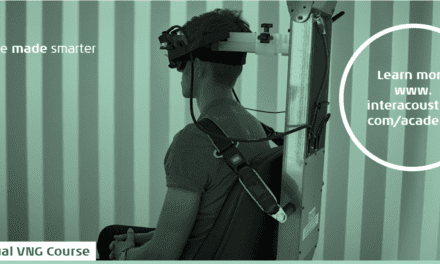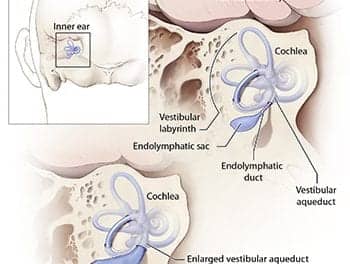Auris Medical Holding AG (NASDAQ: EARS), a clinical-stage company dedicated to developing therapeutics that address important unmet medical needs in neurotology and mental health supportive care, announced the publication of an article confirming dose-dependent effects of betahistine and their relationship to bioavailability in a cat model of surgery-induced acute vertigo. The peer-reviewed article “Betahistine treatment in a cat model of vestibular pathology: pharmacokinetic and pharmacodynamic approaches” was published in Frontiers in Neurology.
The article presents the outcomes of a study with betahistine in a previously established model of acute loss of vestibular function in cats following the unilateral sectioning of the vestibular nerve (neurectomy). The immediate effect of this intervention is the loss of balance and the sensation of vertigo. Thanks to compensatory mechanisms, cats recover their vestibular function over around 40 days. The study demonstrated that daily oral administration of betahistine 2 mg/kg resulted in faster improvement of acute symptoms than with betahistine 0.2 mg/kg. In addition, unlike the lower dose, betahistine 2 mg/kg also accelerated significantly the recovery process; further, it was associated with a significant increase of the histaminergic activity of the tuberomamillary nuclei in the hypothalamus and substantially higher bioavailability in blood plasma (7 x relative to betahistine 0.2 mg/kg).
“We are very excited about the evidence from this study that confirms the benefits of increasing betahistine’s bioavailability,” said Thomas Meyer, Auris Medical’s founder, chairman, and CEO. “This finding provides further support for our approach of using intranasal delivery of betahistine for treating acute vertigo. As previously reported, intranasal administration to healthy volunteers resulted in a 20- to 40-fold higher bioavailability compared with oral administration.”
Original Paper: Tighilet B, Léonard J, Watabe I, Bernard-Demanze L, Lacour M. Betahistine treatment in a cat model of vestibular pathology: Pharmacokinetic and pharmacodynamic approaches. Frontiers in Neurology. 2018;9(431):1-11.
Source: Auris Medical Holding, Frontiers in Neurology





